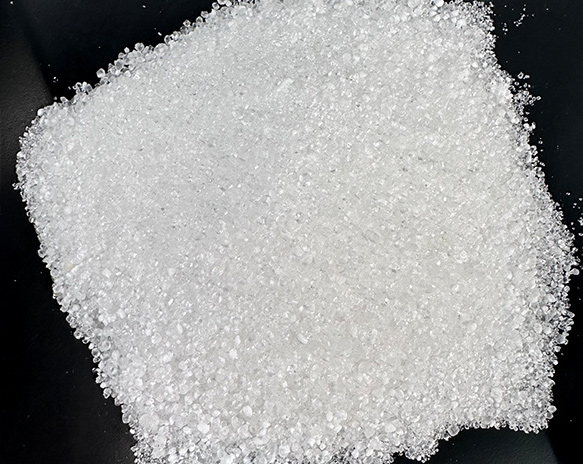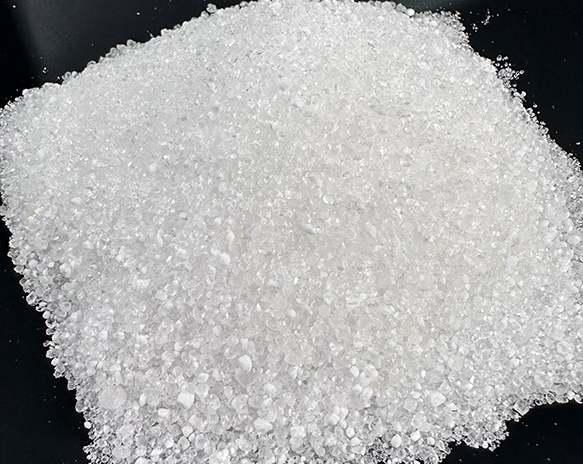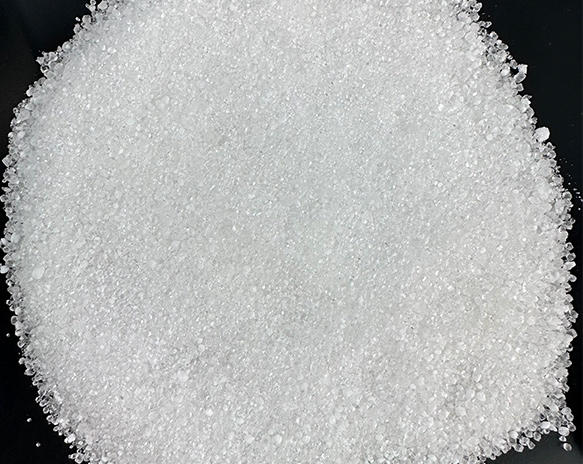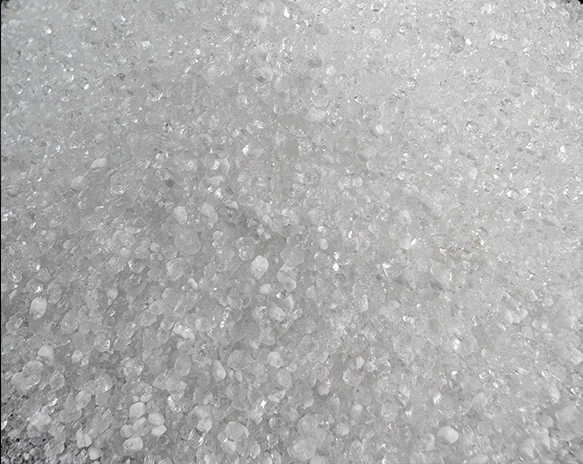







Citric acid monohydrate is an organic compound mainly used in the food and beverage industry as an acidulant, flavoring agent and preservative, freshness-keeping agent. It is also used as antioxidant, plasticizer and detergent in chemical industry, cosmetic industry and washing industry.
At room temperature, citric acid is colorless semi-transparent crystals or white granules or white crystalline powder, odorless, very acidic taste, slightly deliquescent in moist air. It can exist in the form of anhydrous or monohydrate: when citric acid is crystallized from hot water, anhydrous mixture is generated; when citric acid is crystallized in cold water, monohydrate is generated. When heated to 78 °C the monohydrate decomposes to give the anhydrous form. Citric acid can also be dissolved in anhydrous ethanol at 15 °C.
Structurally citric acid is a tricarboxylic acid compounds and as such has similar physical and chemical properties to other carboxylic acids. When heated to 175 ℃ citric acid structural formula it will decompose to produce carbon dioxide and water, leaving some white crystals. Citric acid is a strong organic acid, there are 3 H + can be ionized; heating can be decomposed into a variety of products, and reacts with acids, alkalis, glycerin, etc.
It is mainly used in food and beverage industry as acidifier, flavoring agent and preservative, freshness-keeping agent. It is also used as antioxidant, plasticizer and detergent in chemical industry, cosmetic industry and washing industry.
Used in the food industry
Because citric acid has a mild and refreshing sour taste, it is commonly used in the manufacture of various beverages, soft drinks, wines, candies, snacks, cookies, canned fruit juices, dairy products and other food products. Citric acid has a market share of more than 70% of all organic acids, and there is no souring agent that can replace citric acid to date.
Citric acid monohydrate is mainly used as an acidic flavoring agent for refreshing beverages, fruit juices, jams, fruit candies and canned food, etc. It can also be used as an antioxidant for edible oil. It also improves the sensory properties of food, enhances appetite and promotes the digestion and absorption of calcium and phosphorus in the body.
Used in the water treatment industry
Citric acid is used in water treatment to sterilize and regulate the pH value of water. The acidity of citric acid can change the pH value of cells and affect the normal metabolism of bacteria. Acidic high concentration of hydrogen ions can also change the biological activity of bacteria and directly damage cells.
Used for chemical reagent washing
Citric acid can be used as a reagent for chemical analysis in chemical technology, as an experimental reagent, chromatographic analysis reagent and biochemical reagent; it is used as a complexing agent, a masking agent, and is used to formulate buffer solutions. The use of citric acid or citric acid salts as a detergent can improve the performance of washing products, can quickly precipitate metal ions, prevent pollutants from re-adhering to the fabric, to maintain the necessary alkalinity for washing, so that the dirt and ash dispersed and suspended, to improve the performance of surfactants.
Citric acid-sodium citrate buffer for flue gas desulfurization
Citric acid-sodium citrate buffer solution is a valuable desulfurization absorbent due to its low vapor pressure, non-toxicity, chemical stability, and high absorption rate of SO2.
Used in livestock additives
Adding citric acid to piglet feed can wean early, improve feed utilization by 5% to 10%, and increase sow farrowing. Adding 1% to 2% citric acid to the diet of growing and fattening pigs can increase daily weight gain, reduce the feed-to-meat ratio, improve protein digestibility, reduce the thickness of back fat, and improve meat quality and carcass characteristics.
Used in cosmetics
Citric acid belongs to a kind of fruit acid, and its main function is to accelerate the renewal of keratin, which is commonly used in lotions, creams, shampoos, whitening products, anti-aging products, acne products and so on. The renewal of keratin helps skin melanin peeling, pore refining, blackhead dissolution, etc.